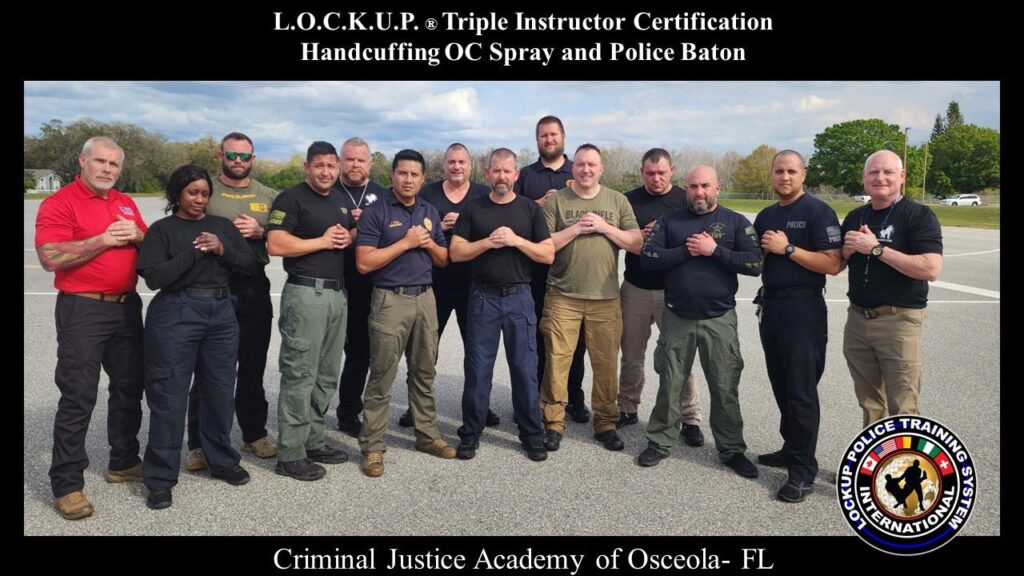Table of Contents
- Understanding Legal Requirements for Pepper Spray Certification in 2024
- Key Authorities and Licensing Bodies Governing Pepper Spray Use
- Essential Training Components for Certification and Compliance
- Best Practices for Maintaining Certification and Avoiding Legal Pitfalls
- Wrapping Up
Understanding Legal Requirements for Pepper Spray Certification in 2024
Each state and country enforces distinct regulations regarding the possession and use of pepper spray, making it essential for users to obtain the proper certification before carrying it for self-defense. In 2024, authorities have intensified the emphasis on responsible ownership, requiring individuals to complete certification programs that focus on legal boundaries and safe usage. These courses often combine theoretical knowledge with practical demonstrations to ensure that users comprehend not only how to deploy pepper spray effectively but also when its use is legally justified.
Certification requirements typically include:
- Age restrictions: Most jurisdictions require users to be at least 18 years old.
- Training completion: Attendance at approved courses detailing the legal and safe use of pepper spray.
- Registration: Some areas mandate that pepper spray devices be registered with local law enforcement agencies.
- Limitations on strength and size: There may be specifications on the permissible concentration of the active chemical and container size.
Understanding these legal nuances ensures that your certification not only legitimizes your use of pepper spray but also protects you from potential legal repercussions. Staying informed with the latest state and federal guidelines is the cornerstone of responsible pepper spray ownership in 2024.
Key Authorities and Licensing Bodies Governing Pepper Spray Use
When it comes to the regulation of pepper spray usage, various governmental and law enforcement agencies take the lead in certifying and overseeing its distribution and use. In many countries, the responsibility falls on the national police departments or public safety commissions to set strict guidelines that license individuals or vendors to possess and sell pepper spray legally. For example, in the United States, state-level departments of public safety or regulatory commissions often manage certification processes, ensuring compliance with federal laws and localized restrictions. These agencies not only regulate who can carry pepper spray but also stipulate the maximum concentration allowed and the situations where use is deemed lawful.
Alongside national and local authorities, specialized bodies like public health and chemical safety organizations play a crucial role in certifying the safety standards of pepper spray products. They verify that the formulas meet health guidelines to minimize risk to users and bystanders. In addition, certain countries require pepper spray manufacturers and traders to acquire specific licenses from trade control authorities to ensure legal distribution channels are maintained. Key stakeholders in this ecosystem also include certified training organizations that provide the necessary instructional courses, making sure individuals are legally qualified and well-informed before carrying or using pepper spray.
Essential Training Components for Certification and Compliance
Compliance with legal standards requires comprehensive training that goes beyond basic pepper spray handling. Core elements include legal education about jurisdiction-specific regulations, ensuring users understand both where and how pepper spray can be lawfully deployed. Trainees must also master practical usage techniques, such as correct aiming, dosage control, and effective range, all taught under controlled scenarios to build confidence and precision. Additionally, learning about the proper storage and maintenance of pepper spray devices is critical to guarantee product reliability and user safety.
Training programs often incorporate interactive components like scenario-based drills and de-escalation strategies to promote responsible application in high-pressure situations. Essential certification courses also emphasize post-use protocols, including immediate first aid and documenting incidents for legal protection. By combining theoretical knowledge with hands-on practice, these programs equip individuals to meet stringent certification requirements while fostering accountability and public safety.
Best Practices for Maintaining Certification and Avoiding Legal Pitfalls
Maintaining your pepper spray certification requires diligent attention to both renewal deadlines and updated legal requirements. Many jurisdictions mandate periodic recertification or refresher courses to ensure users are knowledgeable about safe handling and legal use. Set reminders for renewal dates and stay informed through official channels about any modifications in laws governing self-defense tools. Ignoring these can not only invalidate your certification but also expose you to severe legal consequences.
To steer clear of legal pitfalls, always adhere strictly to the stated regulations regarding storage, transportation, and deployment of pepper spray. Key considerations include:
- Carry pepper spray discreetly and in approved containers to avoid misunderstandings with law enforcement.
- Use only in genuine self-defense scenarios, as misuse can result in criminal charges or civil liabilities.
- Avoid selling or transferring pepper spray to unauthorized individuals, as this can be a prosecutable offense.
- Keep documentation such as purchase receipts and certification cards accessible when carrying your device.
By following these best practices, you ensure your protection rights remain intact while minimizing risks of legal entanglements.
Wrapping Up
In conclusion, understanding the legal certifications required for pepper spray use in 2024 is essential for staying compliant and safe. As laws continue to evolve, staying informed about certification processes ensures responsible ownership and proper application of this self-defense tool. Whether you’re a first-time buyer or renewing your credentials, taking the time to meet these legal standards will provide peace of mind and enhance your personal security. Stay proactive, follow the regulations, and use pepper spray wisely to protect yourself within the bounds of the law.Check Our Other Blogs
- StunGun – Your Trusted Source for Stun Guns, Laws, and Self-Defense Tips
- PepperSprayLaws – Your Trusted Resource for Pepper Spray Information
- StunGunLaws – Your Trusted Guide to Stun Gun Legality and Safety




